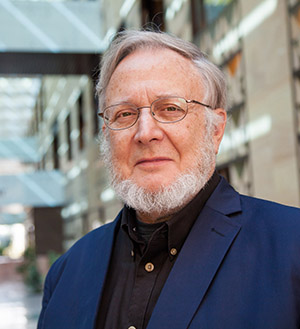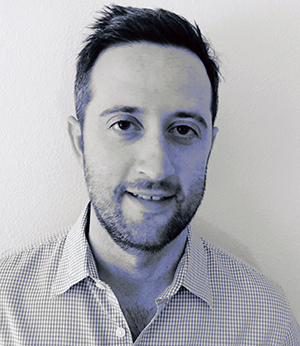Economic Business Spring Speaker Series begins March 31
Indiana University East’s School of Business and Economics Business Speaker Series will begin at 12:30 p.m. on Thursday, March 31 in Vivian Auditorium. The presentation is free and open to the public.
The Business Speaker Series is sponsored by the Charles Koch Foundation. Co-sponsored by Delta Mu Delta, IU East Center for Economic Education, and the IU East Business and Economic Research Center.
The first speaker this spring is John Hooker, T. Jerome Holleran professor of business ethics and social responsibility, and professor of operations research in the Tepper School of Business at Carnegie Mellon University.
Hooker will present two talks on Thursday, March 31: “Working in a Multicultural World,” at 12:30 p.m. in Vivian Auditorium and “Cross-cultural Ethics and Corruption” at 2 p.m. in Hayes Hall, room 254.
Hooker will present two talks on Thursday, March 31: “Working in a Multicultural World,” at 12:30 p.m. in Vivian Auditorium and “Cross-cultural Ethics and Corruption” at 2 p.m. in Hayes Hall, room 254.
The world of work is multicultural, and understanding cultural differences is more important than ever.
Each culture has a logic of its own that incorporates a distinctive set of thought patterns and basic assumptions. “Working in a Multicultural World” presents an intellectual framework that can help one recognize and take advantage of this logic. It is based on a fundamental distinction between rule-based and relationship-based cultures, which leads to differences in the role of information, authority and contracts in business. The talk illustrates these concepts with the speaker’s international experiences. It also explains why modern communication technology and online social networking actually reinforce cultural differences rather than moving the world toward a common culture.
“Cross-cultural Ethics and Corruption” shows how different cultural systems require different ethical norms in business and everyday life. As a result, corruption takes very different forms in different parts of the world, and acceptable or even highly moral behavior in one country may be seen as corrupt in another. The talk uses a number of real-life examples to illustrate how corrupt behavior in a given culture can be recognized and dealt with.
Hooker has published over 200 articles and nine books. He has taught some 20 different courses in mathematical modeling, ethics and cross-cultural issues. He has lived and worked in Australia, Brazil, China (twice), Denmark, India (twice), Qatar, Turkey, the United Kingdom, the USA, and Zimbabwe, in addition to extensive experience in France, Germany, Ireland, Italy, and Mexico, and work-related visits to various other countries. He has received several awards for his contributions to operations research, as well as teaching awards for his cross-cultural courses at CMU.
The Business Speaker Series will present its second speaker, Jared Rubin, co-director of Chapman University’s Institute for the Study of Religion, Economics and Society (IRES) and president of the Association for the Study of Religion, Economics and Culture (ASREC), at 7 p.m. on Monday, April 11, on IU East’s Facebook Live at iue.edu/facebook.
Rubin will present “How the World Became Rich: The Historical Origins of Economic Growth.” Most humans are significantly richer than their ancestors. Humanity gained nearly all of its wealth in the last two centuries. How did this come to pass? How did the world become rich?
Jared Rubin dives into the many theories of why modern economic growth happened and when and where it did. He discusses recently advanced theories rooted in geography, politics, culture, demography and colonialism. Pieces of each of these theories help explain key events on the path to modern riches. Why did the Industrial Revolution begin in 18th-century Britain? Why did some European countries, the US, and Japan catch up in the 19th century? Why did it take until the late 20th and 21st centuries for other countries? Why have some still not caught up?
Rubin shows that the past can provide a guide for how countries can escape poverty. There are certain prerequisites that all successful economies seem to have. But there is also no panacea. A society’s past and its institutions and culture play a key role in shaping how it may—or may not—develop.
Rubin is an economic historian interested in the political and religious economies of the Middle East and Western Europe. His research focuses on historical relationships between political and religious institutions and their role in economic development.
Rubin’s book, Rulers, Religion, and Riches: Why the West Got Rich and the Middle East Did Not (Cambridge University Press, 2017) explores the role that Islam and Christianity played in the long-run “reversal of fortunes” between the economies of the Middle East and Western Europe. It was awarded the Douglass North Best Book Award for the best research in institutional and organizational economics published during the previous two years, awarded by the Society of Institutional and Organizational Economics.
His new book, How the World Became Rich: The Historical Origins of Economic Growth (Polity Press, 2022), with Mark Koyama, overviews and organizes the massive literature on the “big questions” in economic history regarding the development of the modern economy.
Rubin’s work has appeared in journals such as Review of Economic Studies, Review of Economics & Statistics, Economic Journal, Management Science and many others. He serves on the editorial boards of Journal of Economic History, Journal of Comparative Economics, Journal of Historical Political Economy, Journal of Economics, Management, and Religion, and Essays in Economic and Business History.
He has been awarded over $1 million in grants from the John Templeton Foundation for his work in the economics of religion. He graduated with a Ph.D. in economics from Stanford University in 2007 and a B.A. from the University of Virginia in 2002.



